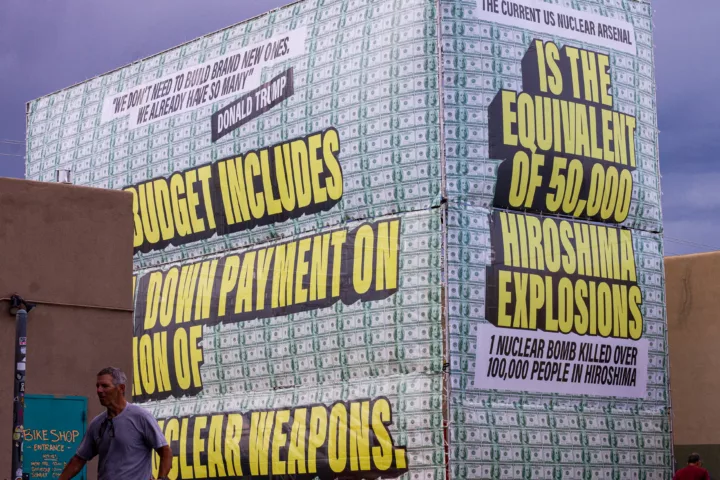On 7 July 2017, the Treaty on the Prohibition of Nuclear Weapons (TPNW) was adopted by the UN General Assembly. Just over three years later, the TPNW reached the 50 national ratifications needed to become international law. The treaty will enter into force on January 22, 2012, and nuclear weapons will become officially illegal under international law. This day will represent a culmination of years of campaigning for nuclear weapons to be reframed as a collective humanitarian problem, one which requires prohibition and elimination, rather than a national military defense asset that needs to be managed and even upgraded.
Many nuclear armed states, including NATO parties, have not signed onto the Nuclear Ban Treaty, and in the case of the United States, have even attempted to urge other countries to withdraw their support. Despite such opposition, the TPNW is entering into international law, due primarily to the strategy employed by International Campaign to Abolish Nuclear Weapons that recognized and used the humanitarian impact of nuclear weapons and “[challenged] the assumptions and policies of the militarist-patriarchal paradigm, in which nuclear weapons continued to be highly valued for deterrence, status and power projection.”1
The ban treaty was the product of a many-layered process and hard fought negotiations, and its entry into force early next year will be a cause for celebration. Keep up to date here with the events Nuclear Watch New Mexico will be hosting that historic day and come celebrate with us!!
1Rebecca Johnson “Nuclear Disarmament: A Critical Assessment.”

